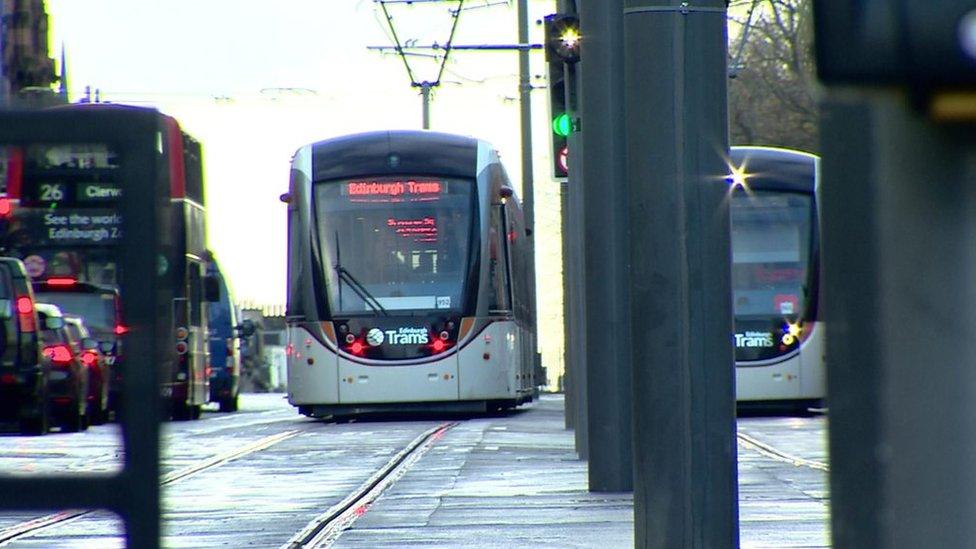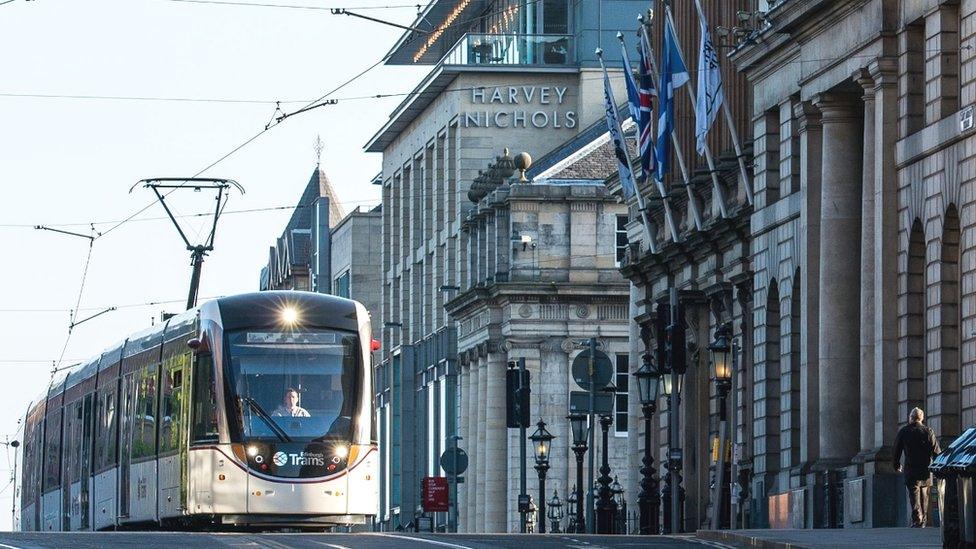Edinburgh trams to be fitted with defibrillators
- Published

Edinburgh trams are to be fitted with defibrillators in a bid to save the lives of cardiac arrest patients.
Quick use of the devices is said to increase survival rates by up to 75%.
The defibrillators, costing £1,500 each, come with a recorded message to explain how to use them.
Edinburgh's Lord Provost Donald Wilson launched the project and said: "Not only can the machines help passengers in need, they can be taken off the carriage and used at tram stations."
Charity St John Scotland is installing the defibrillators which are being funded by public donations and businesses including the Royal Bank of Scotland, Virgin Money, Montagu Evans, Charlie Miller, GLM, Phillips and Laerdal, and Newtyne Consultancy and Training.
Each year, only around 5% of the 3,500 people in Scotland who undergo attempted resuscitation outside hospital for a cardiac arrest survive to hospital discharge.
Lynn Cleal, fundraiser and chairwoman of St John Scotland, said: "We are delighted to bring together the donor businesses with Edinburgh Trams to install these life-saving defibrillators now giving a lifeline right across the city.
"The St John and the City project is committed to making defibrillators more accessible to members of the public and, as they will now be on every tram, we hope that they will be able to save more lives in Edinburgh."

What is a defibrillator and when should it be used?
It is a device that gives a high energy electric shock to the heart through the chest wall and should be used when someone is in cardiac arrest.
A cardiac arrest, external is when the heart stops pumping blood around the body. If someone has suddenly collapsed, is not breathing normally and is unresponsive, they are in cardiac arrest.
Defibrillators are now commonplace in public areas such as train stations, shopping centres, airports and leisure centres.
These defibrillators are often known as public access defibrillators (PAD) as anyone can use them in an emergency.
The British Heart Foundation says that you should not be afraid to use a defibrillator if someone has had a cardiac arrest.
To find out more about defibrillators and how to use them go to the British Heart Foundation, external website.
- Published30 December 2016
